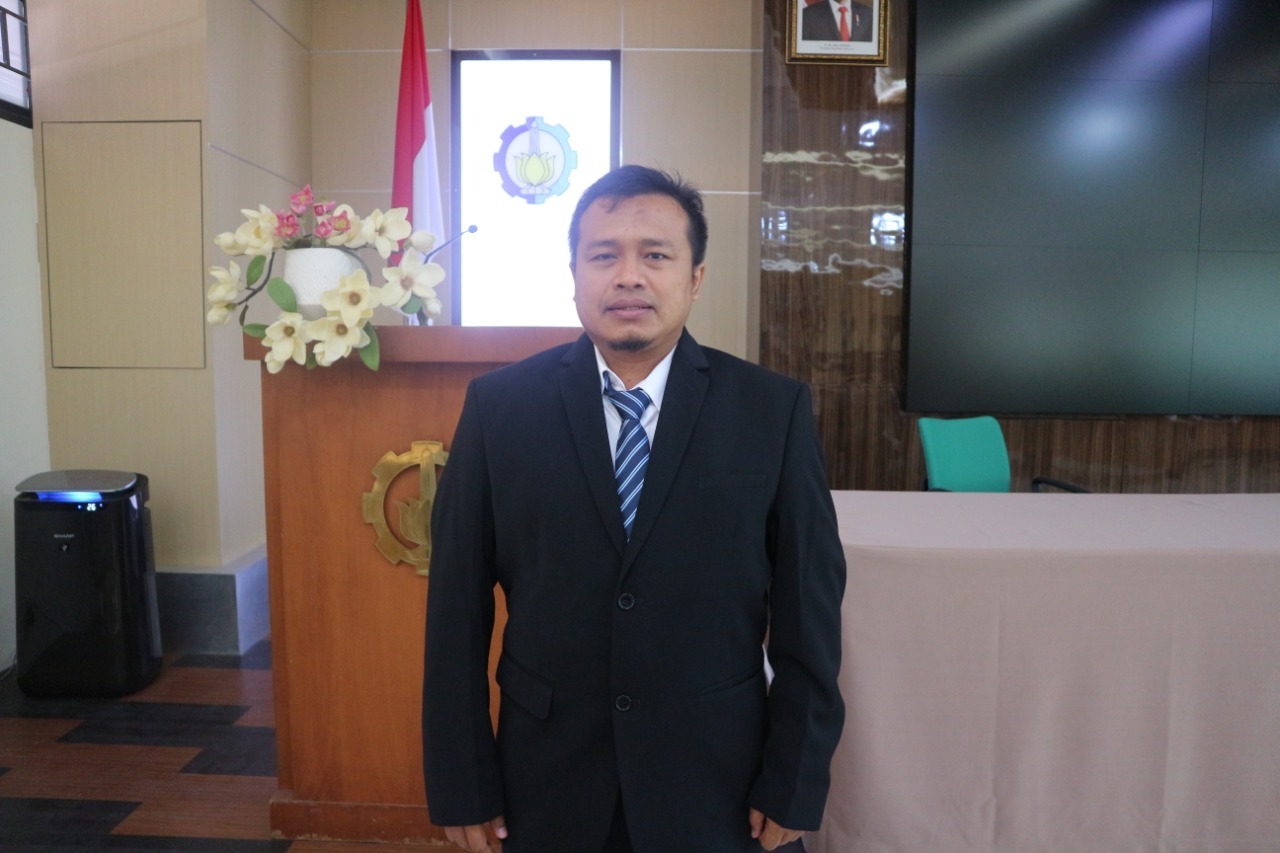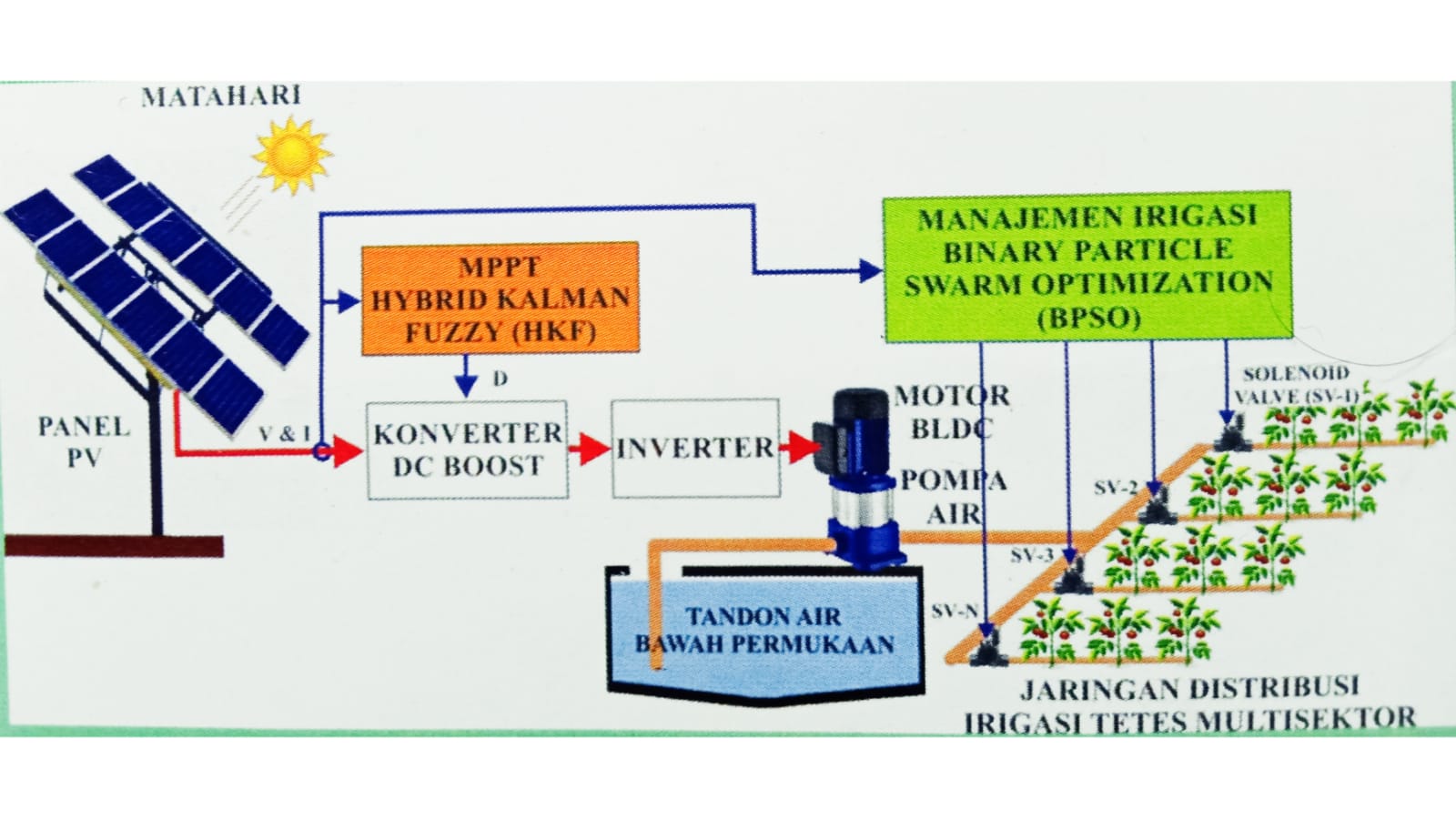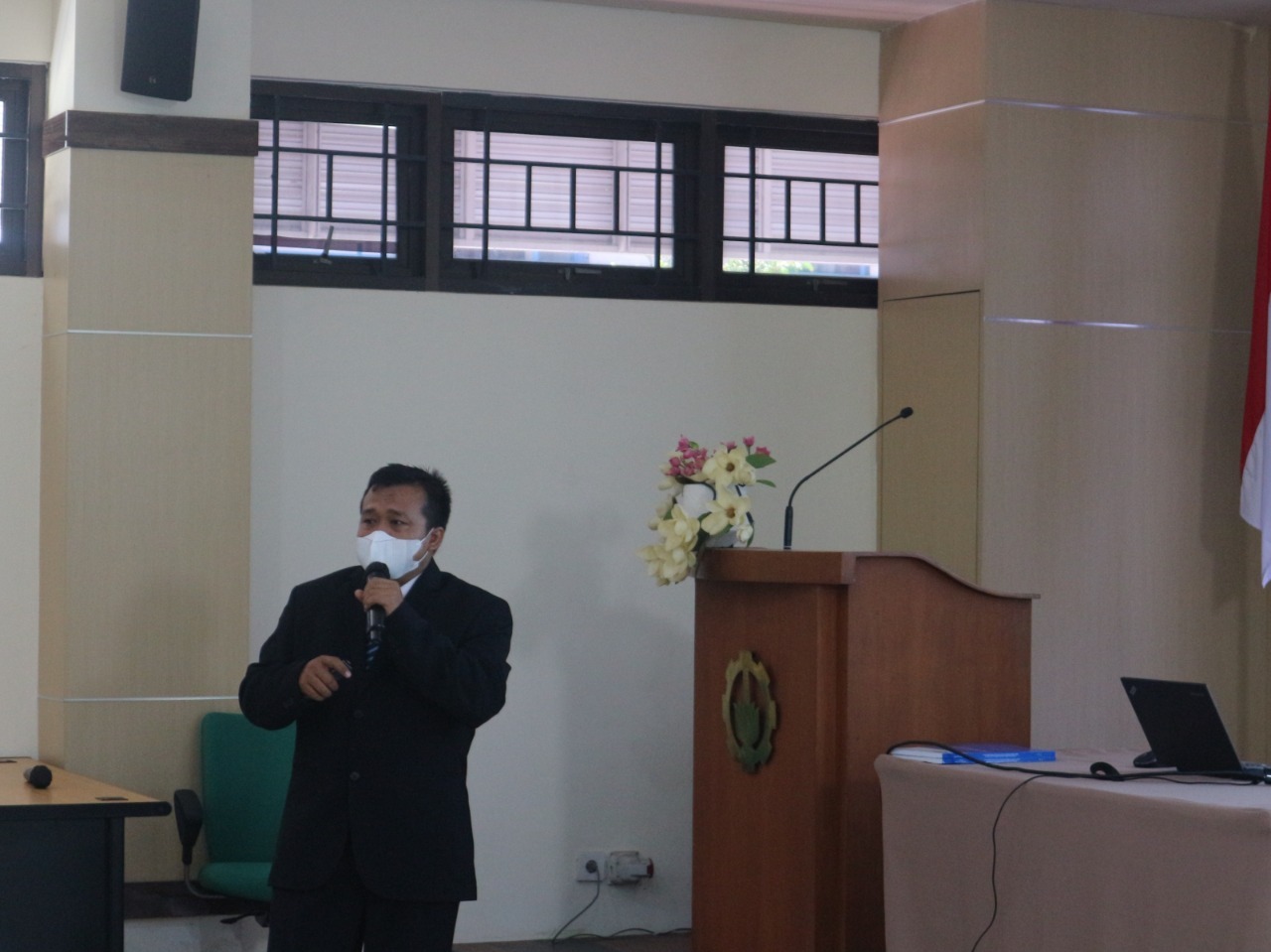ITS Lecturer Achieves Doctoral Degree ‘Through’ Smart Irrigation System

Dr. Suwito ST MT from the Electrical Engineering Doctoral Program was declared a pass at the Doctoral Promotion Open Session
ITS Campus News – The large amount of water and electricity use is still a problem in irrigation systems. Knowing this fact, Dr. Suwito ST MT, a doctoral student in Electrical Engineering Institut Teknologi Sepuluh Nopember (ITS) offers a solution to optimize the overall irrigation system that is more economical and efficient. This solution became the topic of his dissertation research which led him to earn his doctorate.
The man who was born in Sragen explained that currently there is a photovoltaic powered drip irrigation system (SITPV) technology, which integrates artificial intelligence and solar panels so that it can work independently. “However, the system still has deficiencies in optimizing the energy used,” he added.
Therefore, through his dissertation entitled Intelligent Photovoltaic Drip Irrigation System Based on Hybrid Kalman Fuzzy Method and Binary Particle Swarm Optimization (BPSO), Suwito focuses on overcoming the problem of energy uncertainty generated by SITPV. “The uncertainty is due to SITPV’s dependence on solar radiation and weather conditions,” he explained.

Scheme of a photovoltaic powered drip irrigation system designed by Dr Suwito ST MT
Furthermore, the lecturer at the Department of Electrical Engineering ITS said that improper SITPV control resulted in the energy produced by solar panels not being optimal, energy use not being optimal, and irrigation accuracy low. “Several researchers have optimized SITPV, but this effort is still partial, so it is still not optimal,” he added.
The research, which was directly supervised by the Chancellor of ITS Prof. Dr. Ir Mochamad Ashari MEng IPU AEng, integrates the Maximum Power Point Tracking (MPPT) controller with the Hybrid Kalman Fuzzy algorithm. This combination of technologies is able to optimize the output power of solar panels so that they always achieve maximum power at all solar radiation intensities quickly and stably. “Even in cloudy conditions, this system can quickly adapt,” said Suwito.

Dr. Suwito ST MT when presenting his dissertation at the Doctoral Promotion Open Session
Furthermore, Suwito explained, the maximum power generated by the solar panel with the integration of MPPT and Hybrid Kalman Fuzzy is forwarded to a BLDC type centrifugal water pump which has high efficiency. “That way this system is efficient in energy consumption and is very appropriate to be applied in remote areas that do not have an electricity distribution network,” he said.
Suwito believes that the irrigation system he designed, which is also equipped with the BPSO algorithm, enables intelligent distribution of irrigation according to the availability of electricity. The use of artificial intelligence allows plants to get an adequate and precise supply of water according to their needs to grow. “Besides being able to save water, this system has high irrigation accuracy. I also hope that this irrigation system can help Indonesia achieve food security,” he concluded.
With these advantages, Suwito succeeded in holding the title of Doctor of Electrical Engineering which he graduated last week. (ITS Publi Relations)
Reporter: Tyara Novia Andhin
Related News
-
ITS Formulates Inclusive Education System Policy for Students with Disabilities
ITS Campus, ITS News — The Sepuluh Nopember Institute of Technology (ITS) has once again demonstrated its commitment to
September 26, 2022 20:09 -
ITS Develops Andal App, a Solution for MSMEs to Manage Inventory
ITS Campus, ITS News — Amidst rapid technological advancements, many Micro, Small, and Medium Enterprises (MSMEs) still rely on
September 26, 2022 20:09 -
Consolink, an Automatic Soil Consolidation Testing Solution Created by ITS Students
ITS Campus, ITS News — A collaboration between a team of students and lecturers from the Sepuluh Nopember Institute
September 26, 2022 20:09 -
Supporting Economic Empowerment, ITS Signs MOU with BSI
ITS Campus, ITS News — The Sepuluh Nopember Institute of Technology (ITS) continues to strengthen its tangible and sustainable
September 26, 2022 20:09
